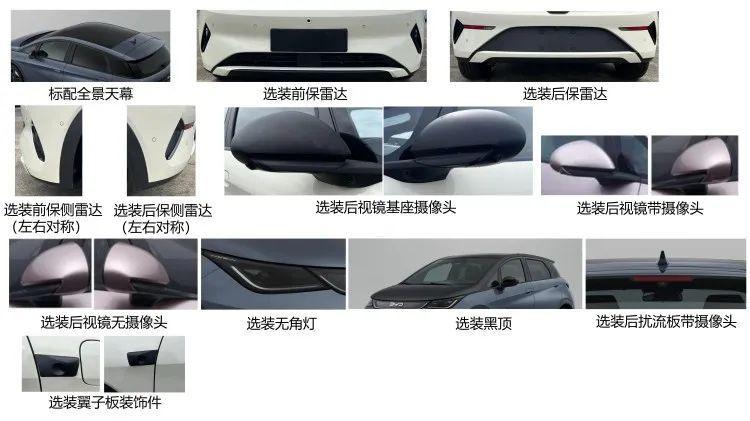Promoting the modernization of national governance with big data thinking
In the process of modernization of national governance, big data is also reflected in a governance value that emphasizes coordination and cooperation, which is the core of truly promoting the government to establish big data thinking, change governance concepts and realize the modernization of government governance capacity. By widely applying big data technology to government decision-making, public services, social supervision, social livelihood security and other fields, we will promote the continuous innovation of social governance model and improve the government’s scientific decision-making, precise service and fine management.
The Fourth Plenary Session of the 19th CPC Central Committee profoundly pointed out the outstanding significance and value of "modernization of state governance" at the present stage. Big data is the product and inevitable result of mankind entering the information age. It can provide an important data foundation and decision support for the modernization of national governance, and it is a new way to promote the improvement of public services and enhance the ability of government governance. In September 2015, the State Council issued the "Action Plan for Promoting Big Data Development" to deploy the development of big data, clearly pointing out that in the next 5-mdash; Promote the development and application of big data within 10 years. General Secretary of the Supreme Leader pointed out: "We should use big data to improve the modernization level of national governance. It is necessary to establish and improve a mechanism for big data to assist scientific decision-making and social governance, promote innovation in government management and social governance models, and achieve scientific government decision-making, accurate social governance, and efficient public services. "
From Big Data Technology to Big Data View
No matter from the institutional level or the operational level, the modernization of national governance can not be separated from the demonstration effect of big data technology brought by the fourth global scientific and technological revolution. Although big data technology was first applied and popularized in the private sector (such as enterprises), it does not affect the effectiveness of improving the supply efficiency of public services. In modern society, big data is presented in the form of technology at first, but ultimately it comes down to the ideological and cultural field, that is, the values in people’s minds — — Big data view. Therefore, the institutional changes and action changes that affect the times are not only big data technology, but also the big data concept that exists behind it and plays a role at all times.
Technically speaking, the generation of big data aims at integrated and digitally operated IT management. Enterprises can combine real-time data stream analysis with historical related data to analyze large-scale organizational big data and make predictions and diagnoses. Government public service departments can use big data to strengthen the insight and perception of public service demand. Government public service departments can also track and record the network behavior of the government and the public in the process of public service supply based on big data technology, and easily identify the indicators such as effectiveness, equalization and accessibility in the process of public service supply and consumption with big data. Therefore, from the social and cultural point of view, big data is first presented in the form of technology, but in fact it subtly affects the thinking and behavior of the government and the public, and finally transforms into a cultural value concept, that is, the view of big data.
Communication mode of big data
In the process of modernization of national governance, the communication mode of big data is embodied in the website as a link, and through the integration and linkage with various websites, Weibo and WeChat, the integrated communication mode based on "website+social" is explored to build a cultural communication mode of government big data media combination based on local and nationwide communication channels covering websites, apps and social platforms. Big data provides a brand-new possibility to grasp the modern society and the information age, and also provides us with a possibility to display this era as comprehensively, stereoscopically and comprehensively as possible in the form of digital data without changing the existing state of the real world. Through the extensive use of big data technology, human beings can have a more comprehensive and profound grasp of the value orientation of themselves, nature and society, and form the world outlook, values, social outlook and cultural outlook associated with big data, so as to understand the "general trend" and "people’s will" more truly and clearly, and accordingly expand and update the value concept of modernization of state governance.
Big data is not only a technological and industrial revolution, but also has objective technical rationality, and it will also bring about profound changes in cultural and ideological concepts in the process of modernization of state governance. Big data has been transformed into a national basic strategic resource, which can efficiently integrate all-round data information in national economic, political, cultural, social and ecological fields, and provide important data foundation and decision support for the modernization of national governance system and governance capacity. With the help of big data technology, the government public departments make use of the advantages of flat, interactive and fast Internet to promote the reform of government services and enhance government governance capacity, promote scientific government decision-making, and realize accurate and efficient social governance and public service supply.
Operation mode of big data
In the process of modernization of national governance, the operation mode of big data is embodied in the mode of "media+think tank+industrial organization" to create a "one network, one library and one circle" big data industry service entity, that is, through "media" as the hub for aggregating resources, through the construction of "think tank system" as its own value support, relying on cooperation with various industrial organizations to form an industrial service-oriented operation ecology, which is finally different from the traditional government governance mode. Big data provides a possibility for modern society, enabling government public service departments to grasp the public service demand in a quantitative way, reflecting the differences in value orientation and preferences of different groups, and seeing their proportion and changes in public service demand in social life in a quantitative way. This provides support for looking forward to the modernization of state governance and strengthening the good governance orientation of state governance modernization.
As early as September 2015, Guizhou Province took the lead in launching the construction of China’s first big data comprehensive experimental zone. Experts from the National Development and Reform Commission said that the local government’s promotion of the construction of the Big Data Comprehensive Experimental Zone is not simply to build an industrial park, a data center, a cloud platform, etc., but a public activity that uses the concept of big data to promote the modernization of national governance, that is, to establish a new model through big data, and to carry out a pilot test around having data, using data and managing data to serve the national big data development strategy. Although technology is the means to embody the value of big data and the cornerstone of progress, the long-term view of big data in people’s actions and thinking does determine the future development trend of big data technology in the process of modernization of national governance.
Governance concept of big data
The concept of big data in the process of national governance modernization is also manifested in the action layout, through the work collaboration and business cooperation between different government public service departments, implementing the governance concept of holistic government and large-scale system, and forming a networked governance structure. On March 17, 2016, the Outline of the Thirteenth Five-Year Plan for National Economic and Social Development of the People’s Republic of China was released. Chapter 27, "Implementing the National Big Data Strategy", proposed that big data should be regarded as a basic strategic resource, and actions to promote the development of big data should be fully implemented, so as to accelerate the sharing, opening up, development and application of data resources and help industrial transformation and upgrading and social governance innovation. The big data technology system enables the national governance system to enter all fields and levels of the social system in a full-space, full-time and full-process manner, so that all aspects, fields, levels and strata of social life can live in their own places, perform their duties, do their best, get their place, and play a better role. This is not only a technical rationality, but also a value rationality.
The open sharing of digital information increases the transparency of production and life, and also provides technical support and guarantee for the government’s public service departments, the third sector, enterprises and social groups to form collaborative governance. This, in turn, has shaped the governance concept that emphasizes coordination and cooperation. Big data is a data collection with large capacity, various types, fast access speed and high application value. Its development depends not only on the expansion of big data resources and the application of technology, but also on the formation of big data thinking. For government public service departments that do not focus on technology research and development and production, ideas are more important than technology. As an effective resource for the government to improve its governance capacity, big data can be used to analyze the internal relations between individuals and groups, contingency and necessity, isolation and connection, subjectivity and objectivity, so that the government can implement classified governance and collaborative governance, and finally promote the modernization of government governance thinking. With the support of big data technology, the government public service supply process can be re-engineered, and the construction of smart government and service-oriented government can be effectively promoted. Therefore, in the process of national governance modernization, big data is also embodied as a governance value that emphasizes coordination and cooperation, which is the core of truly promoting the government to establish big data thinking, change governance concepts and realize the modernization of government governance capacity. By widely applying big data technology to government decision-making, public services, social supervision, social livelihood security and other fields, we will promote the continuous innovation of social governance model and improve the government’s scientific decision-making, precise service and fine management.
In short, big data is a technical representation of the development of the Internet to the present stage, and what is behind it is a value rationality that disenchants technology. To make big data technology truly serve national governance and serve the building of a community of human destiny, it is inseparable from the scientific and rational concept of big data. Only by adhering to the correct concept and rational attitude can we properly grasp and use big data technology in the process of modernization of state governance, instead of being alienated and controlled by big data technology, and big data technology will create more value for human society and bring a better life.
(This article is the phased achievement of the National Social Science Fund Project (19BGL216) and the Natural Science Fund Project of Zhejiang Province (LY16G030003&LY16G030004).) (Author: School of Public Administration, Nanjing Audit University)









































































